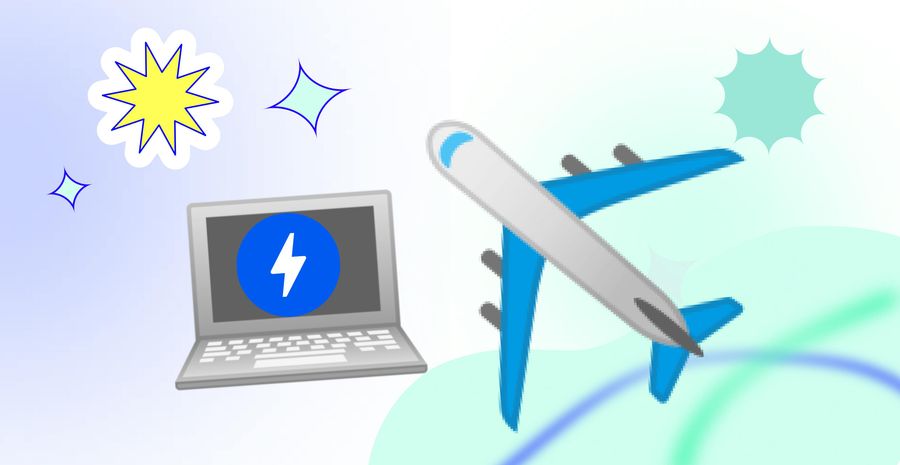Going global with Glitch: a Q+A with AMP educator Ben Morss
It’s an all-too-familiar scenario for most of us. One day you’re looking at a calendar chock full of upcoming events and plans, and then BAM! A global pandemic hits, canceling everything in sight for the foreseeable future. But what to do if you’re an online educator and devrel professional trying to bring new devs to the web in various locales? This was the exact plight Ben Morss, Developer Advocate for Google faced last year when COVID-19 struck. We chatted with him about how he was able to face this situation head-on, how Glitch helped take his team global, and some of the challenges of being an online educator.
Can you provide an overview of the coding workshops you’ve run, or are running? Who do you work with on your team to make them happen and who participates?
In 2019, Rob Ocel at ThisDot and I created a set of three free courses on AMP. We designed them not just to help experienced web developers get started with AMP, but also to help aspiring web developers get started. After all, AMP lets people create interactive websites without writing JavaScript (though you can), and we felt this made it a nice entry point for newcomers.
Running live web coding classes over the years, I learned that starting up a web server presents a significant obstacle. Also, for these courses, we wanted to give students starter code, mostly so they wouldn’t need to write their own CSS. Thus, we decided to incorporate an online coding environment into the courses. Other Googlers were already using Glitch for web.dev. Glitch was cute, simple to get started with, and it made it quick and easy for people to copy a starter project. Rob and I decided it would be perfect for the AMP courses!
We published the courses on amp.dev. We also created decks and videos and made the training materials available to anyone. But we also wanted to make them available to meetups. So we compressed the first course into a two-hour workshop. And we encouraged training programs and boot camps, Google Developer Groups, Developer Student Clubs, and everyone else to run this workshop.
Meanwhile, I was organizing and running a series of AMP mini-conferences around the world. In 2020, I planned to focus exclusively on developing markets. Local contacts helped me set up a three-city trip to Pakistan, an event in Sri Lanka, and another in Bangladesh, all in March and April. I couldn’t wait to get started!
Then, COVID-19 happened. We had to cancel all of our events. How could we reach developers now?
After a period of mourning and confusion, I set up a couple of virtual workshops. We were pleasantly surprised to discover that these could be quite effective. Glitch was a key element here. Not only could students easily find our starter code and start working without having to start up a web server—but everyone’s projects were public by default as well. As people completed exercises, I’d ask them to share their Glitch URLs with me. I could then load those up on my computer and show them to the group. This provided a much-needed social element. And when people had trouble, they could still share their Glitch URL, and I could help them debug.
In 2020, we ran about twenty of these virtual workshops.
~nice-consonant is an app that represents most of the work done in the AMP courses Morss facilitates.
**How does an international coding workshop differ from a program that’s just confined to the US? **
Our events centered in the US and our events centered elsewhere were very similar. One wonderful thing about the developer community is that it’s so international. A web developer in Australia often works with similar tools and similar problems as a web developer in Colombia. As long as everyone can understand the same language, they can use the same content. Of course, there are differences and exceptions, but to me, the remarkable thing is how much programmers around the world have in common.
I noticed early on that a workshop put on by a group in one country would attract people from other places as well. I remember that a workshop put on by GDG Nuremberg also brought in students from places like India and Brazil. Which was spectacular.
We’d love to know how you structure the actual workshop. Can you share any of the materials or apps that you built?
For each of our three courses, we made one Glitch with the starter code and another Glitch with what the student should have at the end. Each course contained a series of exercises, each of which built on the previous work, so we also made Glitches for each intermediate step.
For the workshop, I included 5 discrete tasks. Each involves adding features to a simple webpage, and as the student completes them they build the page. They start with something very simple—modifying an image so that it uses <img>. Then, they add an attribute to make that image responsive. Soon they’re adding an image carousel, social sharing links, and a menu. Within ninety minutes, they’ve learned how to use AMP components to create a basic interactive webpage! It can be quite empowering.
**How do these workshops help you achieve your team’s goals? How do you measure success? **
Even though our international mini-conferences were thrilling, the workshops have been much more efficient. Our live events included a workshop portion, but it was hard to keep it going in a large room full of potentially restless people, not all of whom were developers or who’d brought along a laptop. Sometimes we didn’t have enough power strips or reliable WiFi. And, of course, to run an event in the physical world, we had to find a venue, secure catering, reach out to developers to come spend a day with us, and convince a set of volunteers to fly across the world. Live events were a wonderful adventure, but they also involved substantial time and expense. For the virtual events, I simply reached out to developers who ran an existing meetup. When the time came to do the workshop, I’d just walk up to my office and fire up my computer.
Of course, I really miss the communities we discovered through live events. But some groups have successfully built community through virtual workshops. Last May, eight different groups from across North America, from Memphis to Winnipeg and Houston, all collaborated on a workshop. It became quite the social occasion!
We ran live events for a few reasons, but quite possibly the two most important were exposing developers to AMP and getting their feedback. These virtual workshops help us continue to accomplish the first goal: participants get to make their first AMP site. Interestingly we tend to reach a lot more beginners and less experienced developers, so they become more of an educational event, a chance for newbies to get their feet wet.
To help measure success (or failure), I usually ask participants to fill out a survey at the end. To incentivize people to take the trouble to fill it out, when possible we raffle off a small prize. Taken together, the survey results are about as high as I’ve ever seen for any event I’ve ever been involved with. Go Glitch!
**Has anything in your workflow changed as a result of COVID-19? What’s different and how have you adjusted? **
For a Developer Advocate, well, yes, pretty much everything changed. :) One week I was planning events in five cities, scheduling my own trip to Pakistan, and working on a talk for Google I/O. The next week, my main projects vanished. I had to start again.
A year later, I’m accustomed to the new life that many of us are living—working from home, cooking and cleaning more, taking care of kids, and learning new skills, like how to snake out a clogged shower drain. I still feel highly privileged and incredibly fortunate. I still have a job, no one in my immediate family has caught COVID, and we are fortunate enough to be able to stay home. (This would have been much harder if I’d stayed in my previous career, as a musician.) We’re also fortunate that the extended family time has brought us closer together. But as I thrive on social interactions and the novelty of moving from place to place, I do still find this new life difficult. On the other hand, I’ve also had time to start coding more. Recently I even re-learned C in order to add support for AVIF to libgd.
**For educators and dev rel professionals thinking about using Glitch to reach learners, what are some of your pro tips or lessons learned the hard way? **
I really believe in workshops instead of talks, especially for online events. They help involve everyone. Start off with something easy. Make it fun, encourage people to chat, encourage them to stay involved.
When doing this workshop, I always compress the part where I just talk to people. I’m pretty sure that after five minutes of me talking, most people watching me on their computer screens will have tuned out. I try to replace this talking time with discussion and with coding. Let people be active. Give them the space to learn!
_Thanks to Ben for sharing his experience and wisdom in guiding international workshops and how Glitch was able to empower web devs in the making. If you build or see an app on Glitch that you want us to feature, we’d love to know! Email community@glitch.com or tweet @glitch_!

